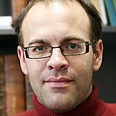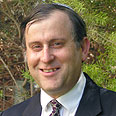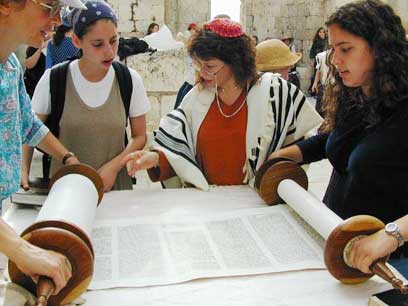

No organization or body of any sort has ever hosted such a conference in Israel or abroad.
In the last fifty years, very little academic research has been conducted on the topic of Reform Judaism either in Israel or in the Diaspora. In order to fill this knowledge gap on the matter, the Van Leer Institute has been conducting research on the subject over the past two years and has issued 12 new studies that will be presented at the meeting.
The Reform movement in Israel is most commonly identified with High Court battles aimed at gaining recognition for this branch of Judaism. However, the movement has had difficulty recruiting new members from the local Israeli community. .
In the United States, Reform Judaism has an estimated 1.5 million people among its ranks but only 25 communities in Israel claim allegiance to Reform Judaism.
Reform movement leaders in the US are well aware of the suspicious and sometimes hostile reception their beliefs receive in Israel.
Dr. David Ellenson, President of Hebrew Union College, told Ynet in an interview conducted about a month ago that "the phenomenon of different strains of Judaism began in Germany and migrated over to the United States and to Israel; part of the problem is that most of the population here is totally unaware about the various branches (of Judaism) because most people that came to Israel are from (Mizrahi) Sephardic background or from Eastern Europe.
"Even if they are aware of some of the branches of Judaism, they usually consider them to be sources of assimilation and that's a mistake."
In the last few years, the Reform movement has significantly invested in trying to get its foot in the door in Israel. For example, this year a new graduate program in Jewish education has been established at the
Hebrew University in Jerusalem in cooperation with the Reform movement.
High Court activists
Those arriving in Israel for the conference will most likely face some criticism which some Israeli researchers harbor towards their branch of Judaism.
Dr. Aviad Hacohen, Dean of the Shaarei Mishpat Academic College, objects to what he sees as the overwhelming number of petitions Reform leaders have filed with the High Court.
"Reform Judaism's use of legal channels through which it has filed several dozen petitions in the past 20 years has not brought them the results they had hoped for. In a way, it has even damaged their position in the eyes of the legal community as well as the general public," Hacohen claimed.

Damaging the movement? (Archive Photo: Gali Tivon)
"The vast appeals to the High Court has worsened the image of the (Reform) movement in the eyes of the public in Israel… it thinks the movement does not have a real following and sees their appeals to the High Court as a pathetic attempt to be admired by the Court, a goal which was also not attained in most cases."
Proud Judaism
It is likely that an additional source of disparagement will be the Reform branch's pride in its relations with gay Jewish communities. In a study by Yakir Englander from the Shalom Hartman Institute in Jerusalem, Englander claims that although the Reform movement's halacha takes a lenient position and accepts homosexuals among its ranks – including gay rabbis – this position is only a fig leaf on Reform Judaism's loins.
One of the examples mentioned in the study dealing with the issue, is whether or not gays should be allowed to be accepted for rabbinical studies programs.
The Central Conference of American Rabbis (CCAR), the principal organization of Reform Jewish rabbis in the US and Canada, concluded that all applicants should be accepted for rabbinic studies without being discriminated due to their sexual preference; however, the rabbis stipulated that the candidate's sexual preference should not be openly expressed.
"From the perspective of Reform halacha, there is a readiness to accept homosexuality, but only on condition that it will not have attention drawn to it more than necessary and also on condition that it be declared as a natural tendency that is unchangeable and not a matter of choice," Englander said.
Holiness in same-sex unions
When the Central Conference of American Rabbis took up the issue of the sanctification of same-sex marriages in 1996, they voted against endorsing gay unions in a 7 -2 vote.
Dr. Mark E. Washofsky, chair of the CCAR's halachic committee, claims that despite the desire to accept same-sex couples, Reform halacha is principally required to observe tradition.
He claims that the notion of "holiness" does not pertain to same-sex unions because homosexuality falls under the category of the "forbidden sex partners" and "abomination" in Jewish law.
In 2000, the issue of same-sex marriages came up again: This time, with the increased awareness of the issue of gay rights in the US and the pressure to cater to public opinion, the rabbis seemed to be more open to compromise on the matter, thus ruling that gay relationships should be viewed as a connection that has a certain degree of "holiness" and each rabbi could decide on his own whether or not to bless same-sex unions in thier congregation.















